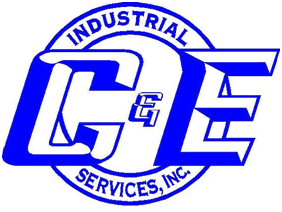Driving through El Paso and the Southwest, it is clear the area is growing. Commercial construction abounds. From schools to new recreation centers, parks, apartment buildings, and other structures, the city seems to be growing by the minute. The growth of all this infrastructure means that behind every project is a team of professionals tasked with ensuring every nut and bolt.
Behind every team of construction professionals, laborers, and architects, is the foreman—the central glue behind every operation that oversees most of the varying facets of a construction project. But who is the construction foreman? What are they responsible for and how are they important for the growth of our cities? Let’s take a look at the important role.
Who are Today’s Leading Foremen?
Perhaps the nation’s top foremen don’t often get the accolades and celebratory claps and standing ovations that other professions like soldiers, police officers, and firefighters receive. And yet, the construction foreman is deeply embedded in the literal construction of our nation’s infrastructure and is in charge of hundreds if not thousands of workers —either directly or indirectly— as they manage a major commercial construction project.
The Foreman of the 21st century is a multi-disciplined hands-on construction expert who understands how a full-fledged work site ought to function and operate. In addition to that, a foreman will have extraordinary foresight and vision in order to foresee hiccups, delays, material shortages, staff issues, etc.
Commercial vs Residential Construction
Commercial construction involves a lot of moving parts and players. Residential projects do so as well but on a much smaller scale.
Commercial construction involves:
- Codes and permits: Every type of construction requires these, but commercial buildings tend to have many more restrictions and requirements to check off.
- Materials: A commercial structure may use a larger spectrum of materials including a steel frame, wood, concrete, steel, and more.
- Equipment: In a commercial construction site there is more heavy duty equipment needed including cranes, bull-dozers,
- Work Pace: A commercial construction site requires realistic but strict deadlines for each project phase. Any setback will take the entire operation back.
The Skills of a Commercial Construction Foreman
No other position in construction produces as much stress, criticism, and demands while requiring so many varying skills and technical knowledge. Both soft skills and hard skills are necessary to ensure clear and effective communication among the many players working on a job site.
The foreman will work on:
Vision: To function as an effective leader, a foreman must possess the ability to focus on the present and the near future. A foreman will typically have to look ahead of a project (about 1-2 weeks). This extended focus allows them to prepare, plan, and position themselves for success.
Oversight: The ability to oversee various facets of an operation is always necessary in construction. There are always a few contractors working on a site and each requires the same amount of attention.
Taking Care of the Troops: The foreman is in charge of their work crew and they must ensure that their workers have what they need to get the job done efficiently and safely. Every day is different and has different challenges. The foreman walks their men through the objectives of the day and encourages the right mental state.
Know equipment and materials backward and forwards: A foreman will want to keep a sharp eye on the condition of all equipment being used. In addition, the foreman should have a working knowledge of the materials needed and used every day. No crew wants to run out of necessary material in the middle of the workweek and have to wait a day or two to resupply.
A Successful Foreman Will Exhibit These Traits
In addition to having great reflexes as punches swing at them in varying directions, a successful construction foreman should exhibit some of these common traits:
Fine organizational skills
The job depends on the head of the crew organizing the different working and moving parts.
Team-building and rapport
All construction crews want to have a strong working relationship with their foreman. The foreman should be responsible for bringing the crew together, having necessary discussions about organization issues, delays, or safety concerns, and presenting the information in an effective way.
A face-the-problem-head-on mentality
A good foreman does not shy away from a challenge or walk away when things start getting a little chaotic. A successful foreman spots problems before they become problems or before they grow and they address them immediately.
A Passion for the job
No construction foreman worth their salt can “phone in” the job. The job responsibilities require full engagement and passion for the work as well as keeping the crew productive and safe. A disengaged foreman will lose his crewmembers and likely lose control of the worksite, resulting in delays, accidents, or other issues.
Don’t Settle for Subpar Work, Get Quality Commercial Construction with C&E
At C&E Industrial, we love being part of the commercial construction process. We work with the project foreman by providing a cohesive team of contractors that take care of much of the site work, excavation, deep trenching, utility installation, and more.
Looking for quality site work or deep trenching? Call us today and find out how we can help your project get off the ground.



